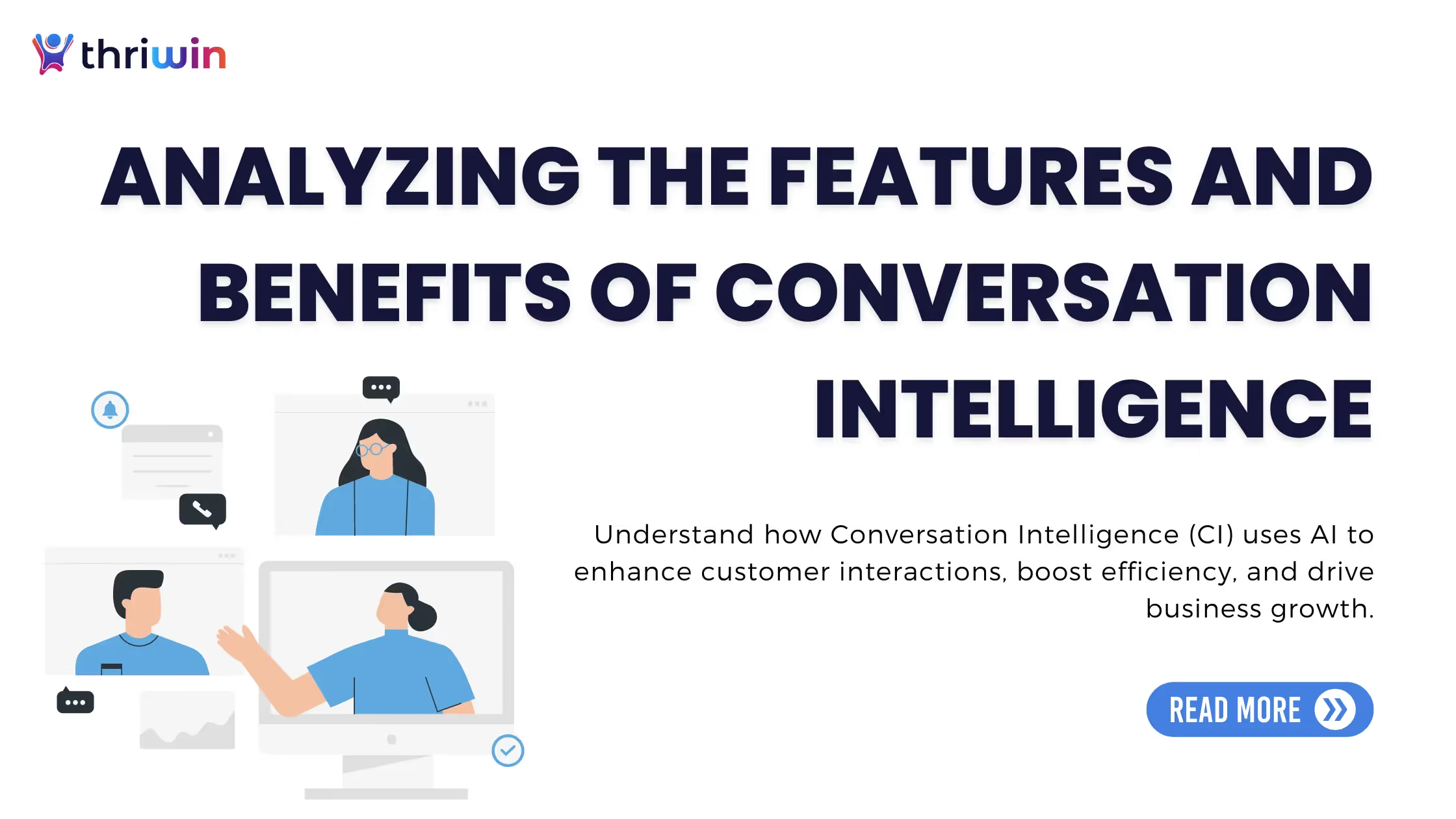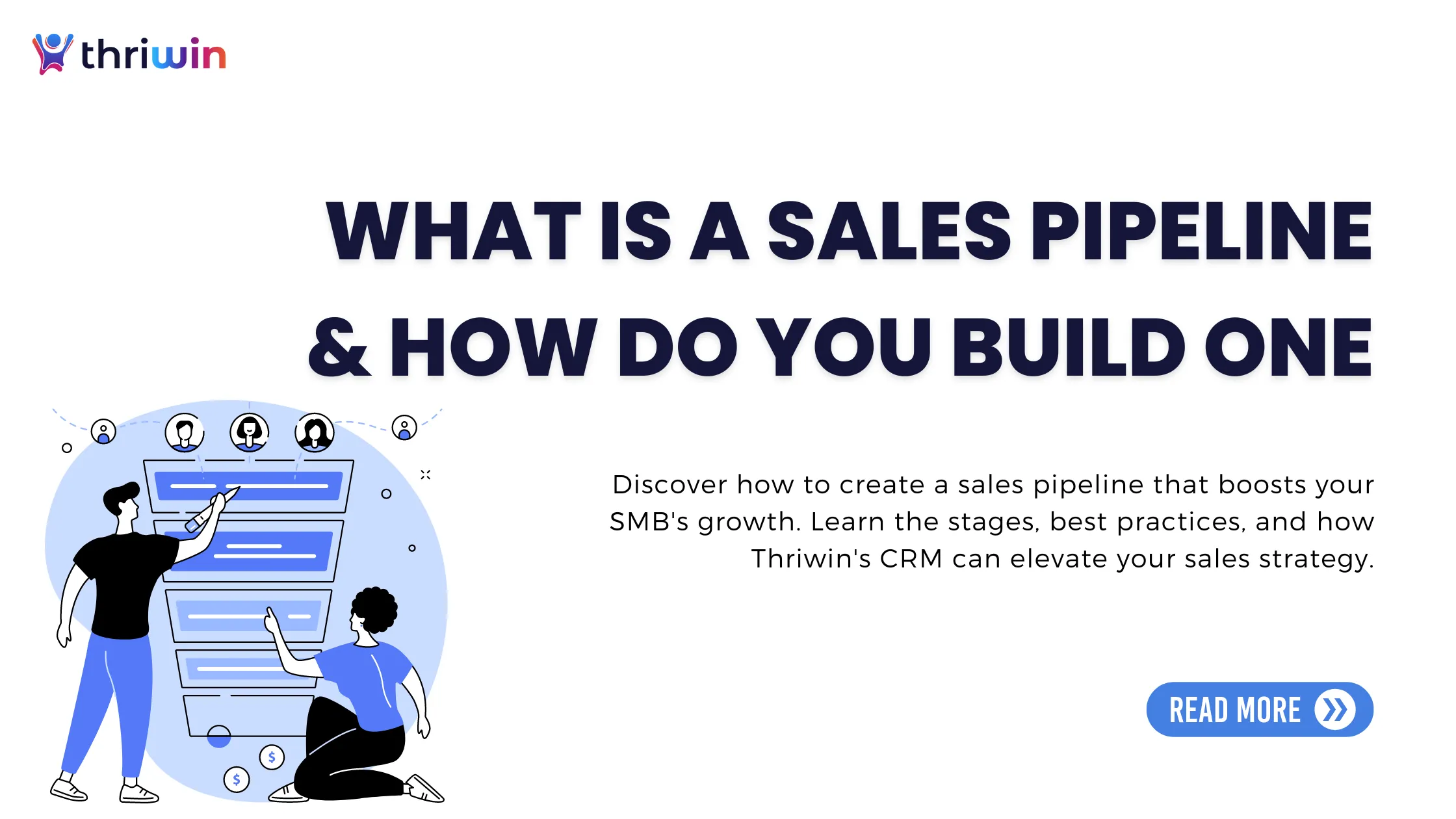Conversation Intelligence (CI) uses AI to analyze speech and text from customer interactions (calls and meetings majorly), offering insights that enhance business operations and customer service. This tool is crucial for improving customer experience and operational efficiency. CI transcribes and examines every interaction in real-time, helping businesses grasp the context, sentiment, and intent behind each conversation. This turns simple interactions into valuable data, allowing companies to refine communication strategies, enhance customer support, and customise marketing approaches to better-fit customer needs and preferences. CI also plays a key role in spotting trends and behaviours that could influence product development and innovation. As a result, businesses can swiftly adapt to market changes and uphold a competitive edge.
What Data can Conversation Intelligence Analyze
Conversation intelligence can harness a wide range of unstructured data sources, especially beneficial for enhancing customer experience, including:
- Recordings from customer calls and meetings like sales or service interactions
- Transcripts from chatbot communications
- Social media customer service chats
- Customer emails
From this data, conversation intelligence can deliver valuable insights such as:
- Transcriptions of verbal communications
- Identification of main themes and keywords within conversations
- Analysis of conversation metrics like speech patterns, interactivity levels, and duration of calls
- Generate automated call summaries
- Evaluations of customer sentiment to help understand customer needs better
- Recommendations for next steps and action items based on the analyzed data
How is Conversation Intelligence Different from Call-Tracking Software
Primary Function
- Call-Tracking Software: Records call logs and basic details about the calls.
- Conversation Intelligence: Delves into the content of customer interactions to give insights and help understand customer needs better.
Depth and Type of Analysis
- Call-Tracking Software: Provides logistical data, focusing on quantitative aspects like call duration and frequency.
- Conversation Intelligence: Offers qualitative analysis by examining customer goals, reasons for calls, and emotional responses.
Focus on Customer Insights
- Call-Tracking Software: Limited to basic operational data.
- Conversation Intelligence: Provides insights into customer sentiments and the underlying reasons for their interactions.
Impact on Business Strategy
- Call-Tracking Software: Helps with managing call operations and tracking marketing campaign effectiveness.
- Conversation Intelligence: Enhances customer service strategies and marketing approaches by offering deeper understanding of customer needs and satisfaction levels.
Outcome for Customer Satisfaction
- Call-Tracking Software: Useful for operational improvements.
- Conversation Intelligence: Directly aims to boost customer satisfaction through informed responses and personalized service.
4 Key Components of Conversation Intelligence
Conversation intelligence technology is built on several foundational components that collectively enhance customer interactions and business processes. These key elements include natural language processing, automatic speech recognition, machine learning, and data mining, each playing a vital role in analyzing and utilizing data effectively. Together, they enable systems to understand human language and predict and adapt to customer behaviors in real time. This integration of capabilities allows businesses to deliver personalized customer experiences and make data-driven decisions that improve overall satisfaction and operational efficiency.
Natural Language Processing (NLP)
NLP allows machines to interpret human language as naturally as possible. By analyzing text or voice data, NLP can discern not only the basic meaning but also the nuanced sentiment and intent behind words. This component is crucial for applications like sentiment analysis, automated customer service, and interactive systems where understanding the subtleties of human communication is key. Connecting the gap between human communication and machine interpretation, it enables more natural and sensitive interactions between people and artificial intelligence (AI) technologies.
Automatic Speech Recognition (ASR)
ASR technology converts spoken language into text, serving as the foundation for voice-enabled applications. It's not just about recognizing words; ASR systems are designed to understand varied accents, dialects, and speech patterns while filtering out background noises that might distort the message. This capability is essential for creating seamless user experiences in voice-driven platforms, ensuring that commands are understood and executed accurately, which is especially important in noisy environments.
Machine Learning (ML)
Machine learning in conversation intelligence involves training algorithms on large datasets to recognize patterns and make informed predictions or decisions based on new data. By continuously learning from interactions, ML can enhance the AI's understanding over time, making it more efficient at handling complex queries. This adaptive learning process is vital for personalizing user experiences, predicting user needs, and providing relevant content and support without manual intervention.
Data Mining
This process involves extracting valuable insights from large sets of conversational data. By identifying trends, anomalies, and patterns in the data, developers can improve AI functionalities and ensure the system evolves to meet user demands. Data mining in conversation intelligence can reveal key insights about customer behaviors, preferences, and pain points, informing strategic decisions and enhancing customer engagement strategies. It transforms raw data into actionable intelligence, driving the continuous improvement of AI systems.
Benefits of Conversation Intelligence
Conversation intelligence technology enhances customer interactions by capturing and analyzing real-time data. It offers insights to refine customer experiences and marketing, trains service teams, ensures regulatory compliance, and increases operational efficiency and profitability.
Enhanced Customer Insights
Tools for conversation intelligence (CI) are skilled at extracting rich insights into the requirements, interests, and behaviors of customers by analyzing large volumes of data from their interactions. This makes it possible for companies to customize their sales and marketing plans to fit the particular needs of various clientele groups. Through improved comprehension of client attitudes and expectations, businesses may create goods and services that genuinely connect with their target market, resulting in increased customer engagement and loyalty.
Improved Efficiency in Operations
Conversation intelligence technologies greatly lessen staff workload by automating meeting notes, identifying action items, collecting data and analysis from customer discussions. This automation not only speeds up the decision-making process by providing real-time insights but also frees up employee time for more strategic tasks that require human intervention. As a result, businesses can achieve higher productivity levels and reduce operational costs, driving overall efficiency.
Improved Compliance and Quality Control
Conversation intelligence tools are essential for ensuring that businesses comply with various regulatory standards by consistently monitoring and recording all customer interactions. This detailed documentation aids in upholding high-quality control measures and effective risk management. Additionally, these tools have the capability to notify supervisors instantly if there are any deviations from compliance, enabling quick corrective actions. This prompt response helps protect the company's reputation and maintains customer trust by ensuring that all regulations are met.
Sales Optimization
Conversation Intelligence (CI) provides sales teams with advanced tools to scrutinize customer dialogues, helping to pinpoint issues, preferences, and buying signals. These insights enable sales professionals to tailor their approaches, addressing customer concerns more effectively and increasing the chances of closing deals. Additionally, by consistently analyzing interactions that lead to successful sales, CI enables the replication of effective strategies throughout the team, thus improving overall sales performance and boosting revenue. This ongoing analysis supports a dynamic and responsive sales strategy, ensuring teams are always equipped with the best approaches to engage customers and maximize results.
Transform Data into Successful Deals
Conversation intelligence platforms identify customer challenges and recommend effective sales strategies using machine learning. Crucially, they prepare sales teams by providing notes, action items, and call summaries, preventing surprises during important calls and meetings. This allows salespeople to customize their messaging and strategies, proactively mitigate risks, and enhance their ability to close deals.
Discover Training and Development Opportunities
The days of manually scoring sales calls, a process often tedious and error-prone, are over. Conversational AI allows for the automatic scoring and assessment of all your calls. This technology identifies areas needing improvement for each representative, offering specific directions for targeted training and development. Additionally, it tracks progress over time, showing how reps evolve with their skills and helping to measure the impact of training initiatives. Furthermore, it fosters a culture of continuous learning and feedback, encouraging reps to consistently enhance their sales techniques and customer interactions.
Utilizing Conversation Intelligence Across Different Organizational Teams
Conversation intelligence technology is revolutionizing organizational interactions with customers and the analysis of such interactions. This innovative tool yields valuable insights that boost capabilities across various departments, from enhancing sales and customer service to refining marketing strategies and supporting leadership decisions.
Sales Teams
Conversation intelligence software delivers real-time insights that empower sales reps to handle customer objections, enhance communication at crucial moments, and tailor follow-ups for better negotiation and improvement pinpointing. It also enhances deal closure strategies and identifies opportunities to upsell or cross-sell, thereby driving revenue growth.
Customer Support
This technology analyzes customer conversations to pinpoint recurring issues, helping representatives resolve problems and enhance customer satisfaction. It supports new staff training with examples of successful interactions, ensures consistent service quality, and speeds up issue resolution by anticipating customer problems.
Marketing Teams
Conversation intelligence helps marketers identify target markets and customer preferences, refine marketing campaigns, segment customers effectively, and predict outcomes to optimize strategies. It also refines messaging based on customer feedback and trends, improving lead generation through precise targeting.
Business Leadership: This tool provides business leaders with actionable insights into team performance, product issues, and customer needs, aiding strategic decision-making and organizational direction. It promotes a data-driven culture with quantifiable metrics for decisions and aids in risk management by early identification of potential issues.
HR Management
Conversation intelligence assists HR professionals in evaluating employee performance, identifying high and low performers, and ensuring policy compliance, which informs personalized coaching and development. It also facilitates succession planning by spotting potential leaders and maintaining high engagement with targeted motivational strategies.
Product Development
Direct feedback from sales conversations informs product teams about customer likes, dislikes, and feature needs, guiding data-driven decisions for product enhancements or new developments. This feedback accelerates innovation cycles, improves market responsiveness, and reduces the risk of developing unwanted features.
Factors to Keep in Mind While Implementing Conversation Intelligence in Business
Because conversation intelligence (CI) offers greater insights into customer habits and preferences, it can significantly change how businesses interact with their customers. This technology also streamlines internal communications, enhancing collaboration across teams and departments. By leveraging conversation intelligence, businesses can improve response times and personalize interactions, leading to increased customer satisfaction and loyalty.
Choosing the Right Platform
Selecting the appropriate conversation intelligence platform is crucial and should be based on the specific needs and goals of a business. It's important to consider how well a platform can integrate with existing systems and workflows. A good fit will seamlessly enhance current operations without causing disruptions, thereby increasing efficiency and enabling a smoother flow of information.
Training and Adoption
To fully leverage the benefits of conversation intelligence, thorough training for all relevant staff is essential. This ensures that employees are well-equipped to use the technologies effectively and can interpret the insights generated. Frequent training sessions can aid employees in staying current on best practices and new features, which will ultimately improve technology adoption and efficiency.
Monitoring and Iteration
For conversation intelligence tools to remain effective, continuous monitoring and iterative improvements are necessary. Businesses should regularly evaluate the efficiency of their CI systems to ensure they are meeting key performance indicators and adapting to changing business requirements. This ongoing process helps identify any issues early and allows for timely adjustments, keeping the systems relevant and aligned with organizational objectives.
Choosing Right Conversation Intelligence Software for your Sales Team
Selecting the best conversation intelligence software, such as Thriwin, is crucial for enabling your sales team to effectively analyze calls and refine strategies. It's important to focus on features that align with your team's goals—real-time analytics, comprehensive training tools, or robust data integration. These capabilities help enhance your team's performance, saving a lot of their time and providing actionable insights to drive sales success and build stronger customer relationships. Ensure the software fits seamlessly with your existing tools to maximize its impact.
FAQs
- How does conversation intelligence work?
Conversation intelligence software employs artificial intelligence models to analyze conversations across various platforms in real-time—be it phone calls, emails, text messages, or on platforms like social media and review sites. These AI models are trained with vast datasets that enable them to discern the underlying meanings and intent in each interaction.
- What is conversation intelligence used for?
Conversation intelligence tools are utilized by brands to deepen their understanding of customer sentiment, enhance quality control in customer service, and support customer service agents with real-time guidance and training. This helps agents maximize their performance and improve customer interactions.
- How can I use conversation intelligence?
Conversation intelligence leverages advanced AI and natural language processing integrated into customer experience management software. With the appropriate tools, organizations can harness these insights to refine strategies across sales, marketing, customer support, and product development, thereby making well-informed decisions to bridge any gaps in customer experience.
%201.svg)






